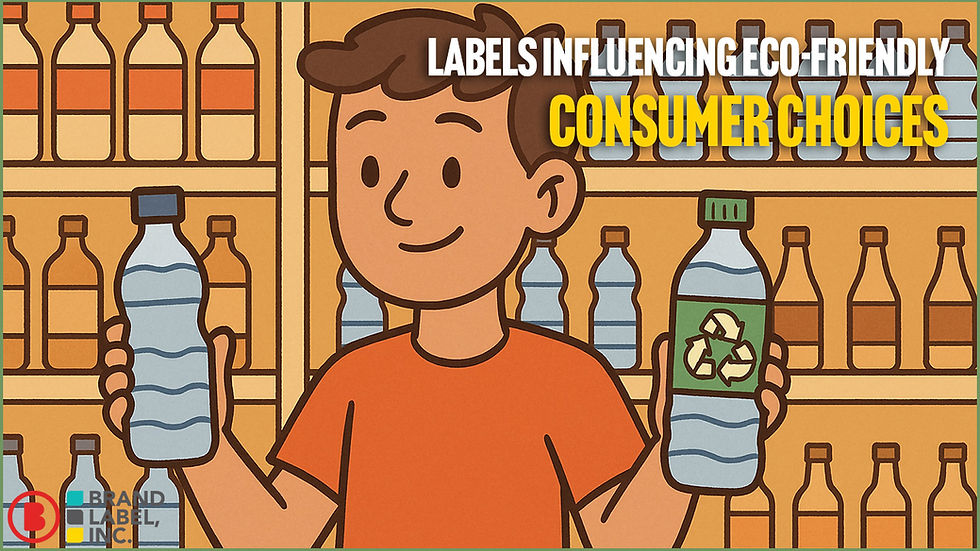How Labels Influence Eco-Friendly Consumer Choices
- Barrett Matlock

- Jul 30, 2025
- 2 min read

In today’s market, consumers are increasingly seeking products that align with their environmental values. Labels play a pivotal role in shaping these eco-friendly purchasing decisions. They act as a bridge between brands and consumers, conveying important information about sustainability, sourcing, and overall environmental impact.
Communicating Sustainability Clearly
Labels provide a platform to highlight eco-friendly practices such as recyclable packaging, organic ingredients, or reduced carbon footprints. Certifications like FSC, Fair Trade, or USDA Organic displayed on labels give consumers confidence that the product meets established environmental standards. This transparency helps build trust and fosters brand loyalty among eco-conscious shoppers.
Driving Informed Choices
When labels include clear information about materials, recyclability, and ethical sourcing, they empower consumers to make responsible decisions. For instance, a simple recycling symbol or a statement about biodegradable packaging can significantly influence whether a consumer chooses one product over another.
Emotional and Ethical Appeal
Eco-labels also tap into the emotional side of consumer behavior. Shoppers often feel a sense of pride and responsibility when purchasing products that contribute to environmental protection. Brands that design labels with earthy tones, natural imagery, and sustainability-related language further reinforce these positive associations.
Enhancing Brand Perception
Products with eco-friendly labels are often perceived as higher-quality and more socially responsible. By emphasizing sustainability credentials, brands can differentiate themselves in competitive markets and attract a growing segment of environmentally conscious consumers.
Labels are far more than just identifiers—they are powerful tools that influence consumer behavior. By clearly communicating eco-friendly practices and values, labels help consumers make choices that align with their sustainability goals. For brands, this means that thoughtful label design is not only good for the planet but also essential for building trust and loyalty in a market increasingly driven by conscious consumption.




Comments